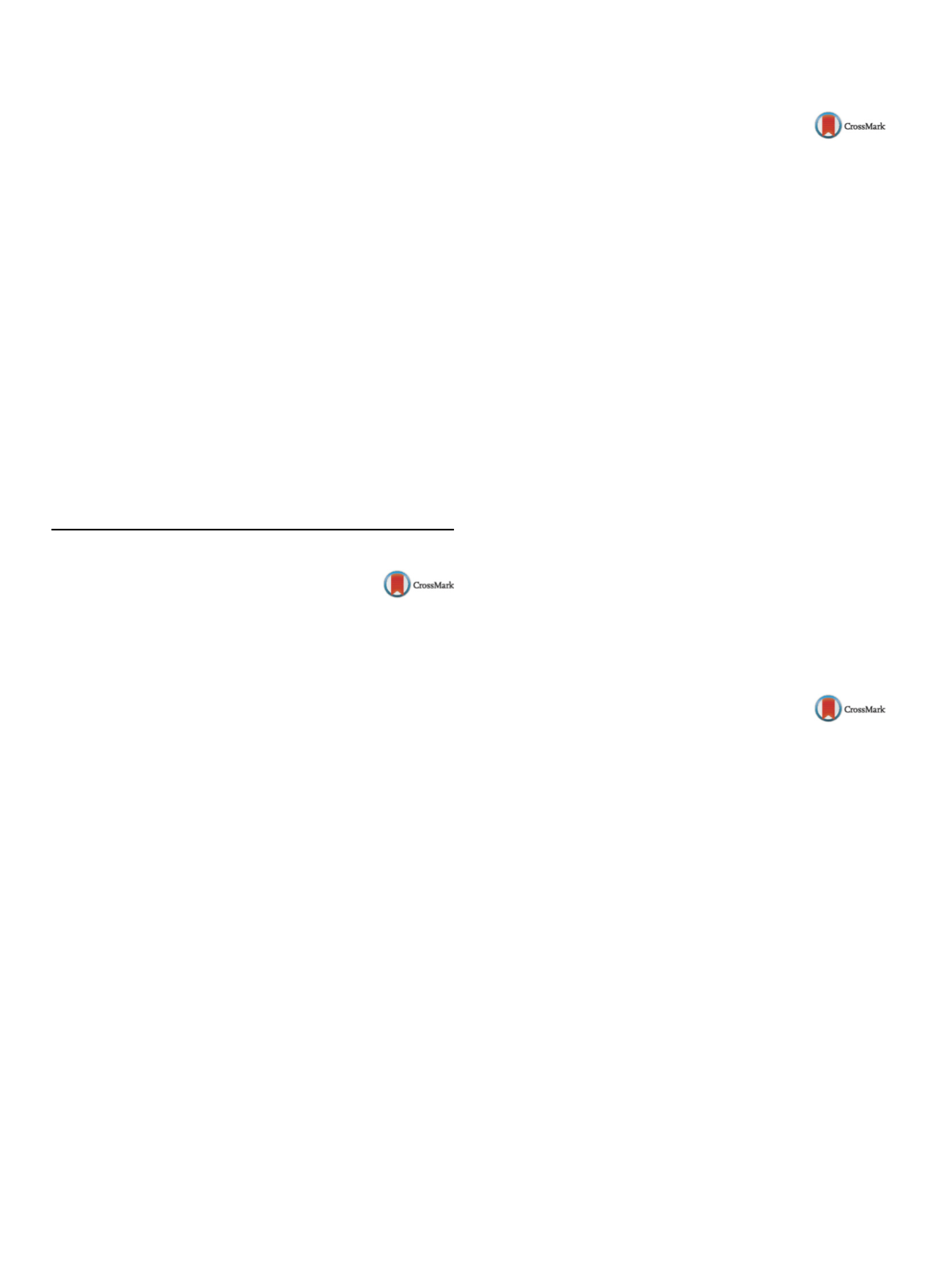

S620
25th European Congress of Psychiatry / European Psychiatry 41S (2017) S583–S644
are as follows: to evaluate manifestations of stigma in mental
health care from the point of view of different experts; to discuss
influence of stigma on different levels of mental health care; to
identify consequences of stigma to mental health care reform. A
qualitative experts’ research was implemented in order to reveal
professional discourse around stigmatization of mental health and
consequences of this phenomenon to mental health care reform.
Research data reveal the strong prevalence of stigma on all levels
mental health care. Individuals with psychosocial disabilities tend
to choose medication instead of psychotherapy. Under influence
of stigma, they prefer rapid daily consumption of medication as a
substitute to active participation in the process of treatment. Politi-
cians are influencedby stigmatizing attitudes in the society towards
individuals with psychosocial disabilities, the persisting pressure
to isolate them in closed facilities. Under influence of stigma, the
process of reform lingers or obtains a shape reverse to a modern
transformation.
Disclosure of interest
The author has not supplied his/her decla-
ration of competing interest.
http://dx.doi.org/10.1016/j.eurpsy.2017.01.994e-Poster viewing: Migration and mental health of
immigrants
EV0665
Dissociative amnesia with fugue vs.
Shenjing Shuairuo: A clinical case
report. Are DSM-5 distress cultural
considerations truly transcultural
relevant?
I. Alberdi-Paramo
∗
, M.Tenorio , G. Montero , R. Baena , L. Niell ,
J. Iba˜nez , J. Peman , M. Villanueva , J. Gomez , J. Rodriguez
Hospital Clinico San Carlos, Psiquiatria, Madrid, Spain
∗
Corresponding author.
Introduction
We present the case report of a 21-year-old Chinese
female, who was brought to the emergency department. We open
the debate between the operative criteria stablished by DSM-5 of
the clinical entity dissociative amnesia and Shenjing Shuairuo - the
Chinese “culture-bound syndrome”.
Objectives
To expose the relevance of the cultural formulation
in the clinical evaluation of patients with a different non-Western
culture in Psychiatry.
Aims
The Shenjing Shuairuo syndrome (“nervous system weak-
ness”) was originally descripted in China, it has a gradual onset,
usually after a stressful event. It involves a minimum 3 of 5 symp-
toms group: weakness, emotions, excitement, neurological pain
and sleep. This complex group of symptoms overlap with disso-
ciative syndrome such as dissociative amnesia.
Methods/results
The cultural formulation interview (CFI) was
used for the diagnostic and subsequent treatment of dissociative
amnesia with fugue in a different culture patient who met the
clinical criteria of this two divergent clinic entities.
Conclusions
In our clinical practice, we will deal with different
culture patients, who could present common clinical entities or
with the so-called “culture-bound syndromes”. The cultural for-
mulation of the clinical cases will help the clinicians to diagnose
and have better treatment’s options in clinical manifestations do
not correspond to the conventional entities included in mostly
Western-based nomenclatures.
Disclosure of interest
The authors have not supplied their decla-
ration of competing interest.
http://dx.doi.org/10.1016/j.eurpsy.2017.01.995EV0666
Syrian refugees in Canada: Clinical
experience in mental health care
K. Bazaid
CHEO, Psychiatry, Ottawa, Canada
War is the most serious of all threats to health (World Health Orga-
nization, 1982) and can have severe and lasting impacts on mental
health. Forced displacement andmigration generate risks tomental
well-being, which can result in psychiatric illness. Yet, the majority
of refugees do not develop psychopathology. Rather, they demon-
strate resilience in the face of tremendous adversity. The influx of
Syrian refugees to Canada poses challenges to the health care sys-
tem. We will present our experience to date in the Ottawa region,
including a multisector collaborative effort to provide settlement
and health services to newly arriving refugees from theMiddle East
and elsewhere. The workshop will be brought to life by engaging
with clinical cases and public health scenarios that present real
world clinical challenges to the provision of mental health care for
refugees.
Objectives
(1) Understand the predicament of refugees including
risks to mental health, coping strategies and mental health con-
sequences, (2) know the evidence for the emergence of mental
illness in refugees and the effectiveness of multi-level interven-
tions, (3) become familiar with published guidelines and gain a
working knowledge of assessment and management of psychiatric
conditions in refugee populations and cultural idioms of distress.
How will the participants receive feedback about their learning?
Participants will have direct feedback through answers to ques-
tions. The authors welcome subsequent communication by email.
Presenters can give attendants handouts on pertinent and concise
information linked to the workshop.
Disclosure of interest
The authors have not supplied their decla-
ration of competing interest.
http://dx.doi.org/10.1016/j.eurpsy.2017.01.996EV0667
Psychoeducation trauma intervention
for refugee women survivors of
intimate partner violence
R.M. Bramble (P.C., Psychotherapy/Consultant)
Caballero Counseling Services, Woodside, USA
For intimate partner violence survivors, groups are helpful in that
they reduce the sense of isolation, which accompanies trauma sur-
vivors as well as provides a sense of belongingness. Judith Herman
states that survivors of gender-based violence in particular, suf-
fer from the secrecy, shame and stigma that are predictable social
consequences of this form of violation. Moreover, intimate partner
violence increases when women are isolated from their families,
communities and peers. For refugee women, the shame associ-
ated with migration trauma, along with having an undocumented
status is prevalent and keeps them from seeking services. The
psychoeducation 8 session intervention helps this vulnerable pop-
ulation understand the physiological response stress, trauma and
post traumatic stress disorder. Once symptoms have been identi-
fied, sessions enable women to reduce the symptoms by utilizing
methods of self-care. Cultural specific material for Latina undocu-
mented IPV survivors in New York City with integration of breath
work, sensorimotor, music and easymovementswill be highlighted
to demonstrate intervention.
Disclosure of interest
The author has not supplied his/her decla-
ration of competing interest.
http://dx.doi.org/10.1016/j.eurpsy.2017.01.997

















